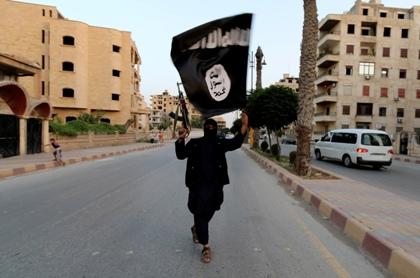Can ISIS penetrate into Iran?

By Azer Ahmadbayli / Trend
ISIS runs away from Syria and is almost crushed in Iraq, which is acknowledged by international intelligence bodies and proven with real facts. However, many believe that it will not vanish into thin air and grow in other different regions as the root causes of the “Islamic Caliphate” emergence have not been removed.
But this is another story.
People who perceived the taste of power, who were taking part in enactment of laws and their implementation, living on their own patterns, and acquired war experience – those warm recollections will not allow them to forget their past life.
Great amount of ISIS fighters are of European, Russian and Central Asia origin, but it does not mean they will necessarily return to their homeland. They, together with part of local (Syrian and Iraqi) IS members, may also move to Sunni populated areas with poorly guarded boundaries and slack state supervision. Based on SITE Intelligence Group (SITE), IS presence is growing now in Afghanistan, Indonesia, Kashmir, and a number of African states.
Another big trouble is also that there are women and under-age children among the ISIS communities fleeing now from the Middle East. The latest example of children’s involvement was a Russian boy identified by IS among two suicide bombers who hit an Iraqi military post in Anbar governorate, SITE reported.
Apart from Sunni-Shi’a split, ISIS has a special score to settle with Iran due to Tehran’s role in withstanding it in Syria and Iraq.
It has already started. In June Iran suffered a deadly attack claimed by the "Islamic State", that killed 17 people and injured dozens more.
At least two men - suicide bombers were from the town of Paveh – Kurdish populated Kermanshah province at the Iranian-Iraqi border, where a number of detains were made.
Another string of arrests was conducted in south-eastern region in Razavi Khorasan province not far from the Afghan border, as Iran detained 27 people plotting attacks for the Islamic State group, including 10 who were detained in a regional country with outside assistance, the report of the country’s intelligence ministry said.
Within two months after the terror act Iranian intelligence services arrested some sixty suspects.
Traditionally, Iranian intelligence services, when revealing any illegal actions (terrorism, propaganda against existing state system, drug trafficking etc.), do not hurry up to detain suspects, but prefer to track the entire chain of people involved. Surely, the terrorists were on radar of intelligence services, but somehow at that case the situation got out of control and many people were killed.
In August, ISIS released a video with threats to repeat attacks and inflict pain and damage on Iran.
There are Sunni minorities in Iran which have been ill-disposed towards the state. They live in mountainous areas – Kurds in north-west adjoining Iraq and Baluchi in south-east bordering with Pakistan, and have close ties with their nationals living beyond the borders.
Unfriendly attitude to central authority is explicable as for decades there has been not any noticeable economic development in those regions with people mainly living in poverty. They are also deprived of representation in the Government and have only a few reps in the Parliament.
It comes as no surprise that there had been a number of the Kurdish and Baluchi uprisings in the past years, which were harshly crushed by the central Government. Both claimed they demanded more political and economic rights while the Government used to call it separatism.
Both Kurds and Baluchi have illegal armed groups.
A part of Kurds and Baluchi has been involved in smuggling and illegal trade, and are well aware of secret mountainous pathways crossing accordingly Iran-Iraq and Iran-Pakistan (Afghanistan) borders – areas of potential ISIS penetration. Depending on intentions, it can be used to fight IS or to support it.
All of these assumptions and real challenges are well-known to Iranian intelligence services, but nevertheless, there are still risks of IS appearance in Iran by several reasons:
- Iran is physically very close to the scene;
- It is utterly difficult to guard borders with vast mountainous terrain;
- Possibility for corrupt practice of relevant local authorities;
- Mutual profound mistrust between the Shi’a leadership and the Sunni minorities, which is a breeding ground for IS propaganda to recruit new fighters, as it happened in June.
---
Follow us on Twitter @AzerNewsAz
Here we are to serve you with news right now. It does not cost much, but worth your attention.
Choose to support open, independent, quality journalism and subscribe on a monthly basis.
By subscribing to our online newspaper, you can have full digital access to all news, analysis, and much more.
You can also follow AzerNEWS on Twitter @AzerNewsAz or Facebook @AzerNewsNewspaper
Thank you!
